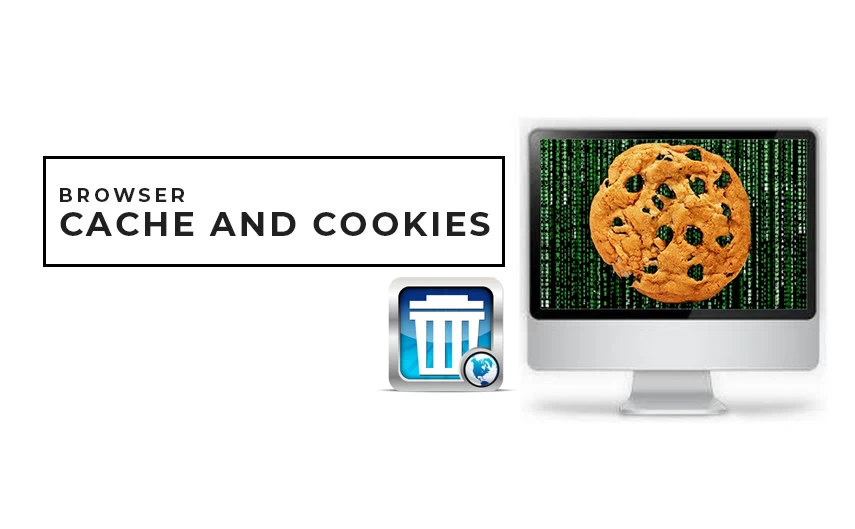The Internet is full of surprises, and so do the internet browser! If you’ve been surfing the internet lately, you must’ve come across the terms browser cache and cookies. These terms are quite common, as you might’ve encountered them every time while operating an internet browser or visiting a site.
Both cache and cookies are two varied types of temporary storage that store data on your local device taken from the websites you visit. Such data is stored to aid the best user experience and performance of web pages. They both store different types of information and are used for different purposes.
Keeping both under concern, in this article, we’re going to discuss what a browser cache and browser cookies are, and what’s the difference between browser cache and cookies.
So, with that said, let’s roll the intro.
WHAT IS BROWSER CACHE?
If you’ll search the term “Cache” it’ll be defined as “Putting something in storage” with the purpose to use it later. A browser cache does the same. When you visit a website, the browser cache store certain static data and files such as–
- Videos
- Images
- CSS
- Java Script
- HTML Pages
- Logos, backgrounds, etc.
In simple words, a cache remembers different parts of pages (logos, pictures, etc.) to help them open quickly and load faster during your next visit. Once the data is stored it will not be restored again.
Fundamentally, the browser cache helps you to speed up your website by lessening the load on your web server. Most importantly unlike cookies, it doesn’t pop up any dialogue box with the acceptance request on it.
BROWSER CACHE EXAMPLE
Let’s take websites as an example — When you search for a product or service on a browser it displays numerous websites on your screen. The first time you visit any e-commerce store it may take some time to load and display the listed products on your screen.
Here’s what the cache does – it stores the data like images, videos, etc. you view in order to load that page faster every time you revisit it.
These web browser caches will also help websites and search engines display relevant advertisements. Looking at the pre-existing cookies and other data such as images etc. in your cache. Your current visited website will see other domains you had visited earlier and shows you the advertisements that might interest you.
WHAT ARE COOKIES?
A cookie is a small file that stores visitor data or information, particularly website visitor data. A cookie is a helpful system that is used to store information about the visitor, such as–
- Passwords
- Most visited pages
- Login credentials/authentications
- Date/time of visit
- Shopping cart/ product preferences etc.
Cookies can also help identify and track visitor activity, even when they do different website visits. Unlike cache, cookies can only store text-based data such as –
- Session IDs
- IP address
- Visiting history, etc. to identify your computer.
In simple terms, cookies are the files created by the websites you visit. It helps in making the user experience easier and better by saving visitor browsing data.
Browser cookies are used to store data for a shorter tenure. Such cookies come with an expiration, as their lifespan is predefined by their creators. So, it expires every time it completes its fixed-time span.
BROWSER COOKIES EXAMPLE
Since cookies are used on websites to help e-commerce websites learn what your interest area is. It helps sites to tailor specific content as per your liking.
Suppose you have bought a gadget online or made an e-podcast subscription in an online store somewhere.
What cookies will do is it will allow the websites to suggest different podcast sessions of the same podcaster or the most relevant gadget from your past purchase that would fit your interest perfectly based on your previous purchase or subscription.
DIFFERENCE BETWEEN CACHE AND COOKIES
| So. No. | Basis of Difference | Cache | Cookies |
| 1. | Data Storage Tenure | Cache stores data for a longer tenure. It has to be deleted manually. | Cookies come with a fixed life span. It stores data both on the browser and the server. |
| 2. | Deployment | Caches are deployed to store user website content. | Cookies are deployed to store user data to track user choices. |
| 3. | Type | Two types – Browser Cache Proxy Cache | Two types –Transient Cookies Persistent Cookies |
| 4. | Data Stored | Stores website content that is used frequently e.g. – CSS, Java Script, page media, and HTML (videos, images, etc). | It stores the user’s choice data e.g. – browsing sessions, user’s website use history, user credentials (visited website), etc. |
| 5. | How it requests | Caches do not store data requesting users or pop up any notification on the screen. | It sends a response to the server to get the end user’s permission. In simple terms, cookies pop up a request box on the user’s screen requesting permission for tracking their activity. |
| 6. | Storage Space | Caches took more storage space as they are less money efficient. | Cookies took less storage space as they are way more efficient with the device’s memory. |


